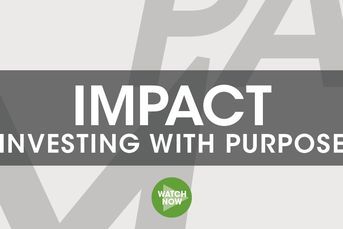Buffett alters yardstick after Berkshire falls short of goal
Warren Buffett, the billionaire chairman and chief executive officer of Berkshire Hathaway Inc., changed the standard by which he measures performance after falling short of his target for the first time in decades.
Warren Buffett, the billionaire chairman and chief executive officer of Berkshire Hathaway Inc., changed the standard by which he measures performance after falling short of his target for the first time in decades.
A gauge of Berkshire’s net worth failed to rise as much as the Standard & Poor’s 500 Index in the five years ended 2013, Berkshire’s annual report showed today. It was the first time that happened since he took control of the company in 1965. Still, Mr. Buffett said that he and Vice Chairman Charles Munger can beat the index over stock cycles, like they did in the six-year period that ended Dec. 31.
“Through full cycles in future years, we expect to do that again,” Mr. Buffett wrote in the report. “If we fail to do so, we will not have earned our pay.”
Mr. Buffett, 83, has long criticized other companies for altering how they evaluate their performance when such changes make managers’ efforts look better. Even as he predicted that Omaha, Neb., Berkshire would fall short of its goal last year, he wrote that he and Munger wouldn’t “change yardsticks.”
Book value, the measure of assets minus liabilities that Mr. Buffett highlights, rose to $134,973 a share at the end of December, 91% more than where it stood five years earlier. The S&P 500 returned about 128% during that period, including dividends, as stocks rallied from their financial crisis lows. The Berkshire number is an after-tax figure, while the index results are before taxes.
RECORD PROFIT
“He moved the goal post a little bit,” said David Rolfe, chief investment officer of Berkshire shareholder Wedgewood Partners Inc., which manages about $7 billion. “For those that focus in on that, it may be disconcerting. Quite frankly, we never gave it much thought.”
Apart from missing the five-year goal, Mr. Buffett said operations performed well in 2013. Berkshire reported that fourth-quarter net income rose 9.6% to $4.99 billion on better results at insurance units. Annual profit jumped to a record $19.5 billion while Mr. Buffett’s cash hoard climbed to $48.2 billion as of Dec. 31 from $47 billion a year earlier.
The number of employees increased by more than 42,000 to 330,745 at the end of 2013. That includes about 29,000 at HJ Heinz Co., the food company that Berkshire bought last year with Jorge Paulo Lemann’s 3G Capital.
Mr. Buffett said the Heinz deal could be a template for large acquisitions. Berkshire provided more than $12 billion to help finance the deal, while 3G oversees operations. He wrote that he’s prepared to take a larger stake in Heinz if some 3G investors seek to sell their shares in the ketchup maker.
ENERGY DEALS
Berkshire is also seeking more acquisitions at its MidAmerican Energy Holdings Co. utility business after buying NV Energy last year for $5.6 billion to expand in Nevada. Power production is less vulnerable than other industries to recession, and having diversity within the business limits the risk that a single regulator could harm the operation, Mr. Buffett said.
“He’s taking the money and reinvesting it in a smart way,” said David Sims, co-manager of the Eagle Capital Growth Fund, which holds Berkshire shares. “It’s difficult for any investors to be unhappy with that.”
Mr. Buffett’s long-term track record is among the best in investing and responsible for making many of his early backers wealthy. Book value stood at $19 a share when he took over and had compounded at almost 20% annually through 2013. That compares with 9.8% for the benchmark.
Missing the mark in the last five-year period highlights how difficult Mr. Buffett’s task has gotten with his company’s expansion. Takeovers and stock picks have built Berkshire into a business with dozens of operating units and equity investments valued at more than $115 billion. That means future gains have to be bigger in absolute terms to increase book value by the percentage amounts of years past.
Mr. Buffett highlights the comparison with the S&P 500 as a way for shareholders to evaluate his performance against a low-cost fund that tracks the index. He has said that book value per share understates his company’s true or intrinsic value, which relies on some subjective analysis.
On an annual basis, Berkshire has failed to beat the index only 10 times during his tenure, and nine of those occurred when the S&P 500’s annual gain exceeded 15%, Buffett wrote Saturday. The index returned 32% last year.
“I believe both Berkshire’s book value and intrinsic value will outperform the S&P in years when the market is down or moderately up,” he wrote. “We expect to fall short, though, in years when the market is strong — as we did in 2013.”
Mr. Buffett’s homespun wisdom and investing success has made his letter a must-read on Wall Street. The billionaire strives to make the document readable and counts on his friend, Fortune magazine’s Carol Loomis, to help edit the remarks. He has said he writes for people like his sisters, who have a lot of their money invested in the company and don’t work in finance.
The billionaire uses the letter to highlight annual results at Berkshire, applaud the work of managers at its business units and opine on corporate governance and the economy. This year, he warned about state and local governments’ obligations tied to employee retirement benefits.
“Citizens and public officials typically under- appreciated the gigantic financial tapeworm that was born when promises were made that conflicted with a willingness to fund them,” he wrote. “Unfortunately, pension mathematics today remain a mystery to most Americans.”
(Bloomberg News)
Learn more about reprints and licensing for this article.







